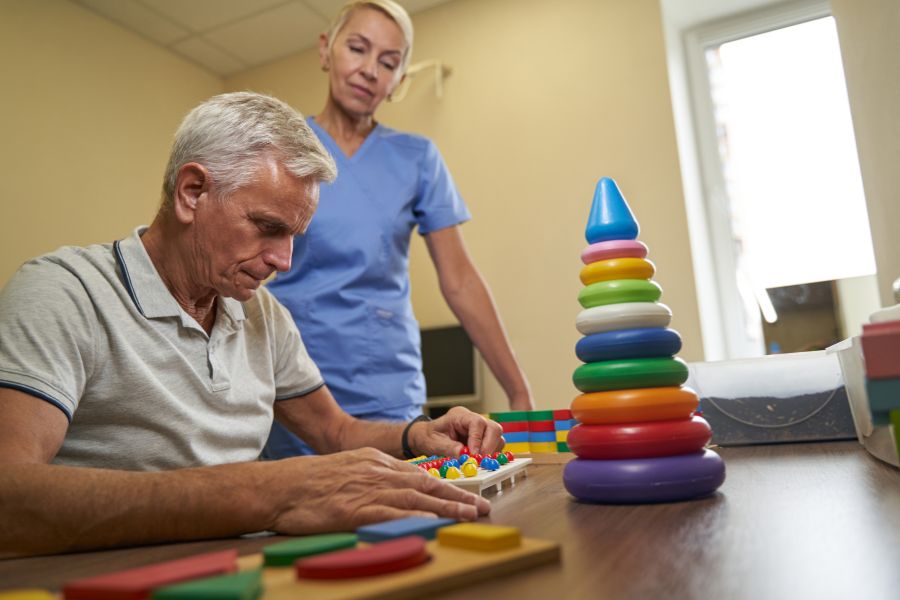|
We know there are a lot of questions that come up for spouses, kids, grandkids, nieces, and nephews when they start looking for quality care for their loved ones.
Understanding the true nature of a memory care center is crucial from the outset. Assisted living is not the same as memory care. Although memory care sections are available in some assisted living facilities, their operations will differ from those of the assisted living section. This is due to the fact that individuals who experience memory loss, regardless of whether they have dementia or Alzheimer's disease, require specific care. As a result, compared to standard long-term care facilities, memory care institutions and homes will have slightly different layouts. Here are five things you should know about a quality memory care facility before you start looking for memory care for your loved one. YOUTUBE EMBED: https://youtube.com/shorts/RlX3EEYym_o?si=Vz3rSUnbg_GGxiY2 #1 - It’s NOT the Same As Assisted Living A memory care institution differs from a typical assisted living home, as we have already discussed. The assisted living facility's residents live and move around it just like they would in a neighborhood or apartment complex. They receive a flexible activity schedule that they can choose from, attend meals whenever they want, and are not required to check in with personnel on a regular basis. This is because they don't require the same amount of care as people with memory loss because their cognitive function is still fairly intact. #2 - Employees Have Special Training Residents with dementia and Alzheimer's disease are the focus of our staff training at Bridgeway Senior Healthcare. This indicates that the staff members are knowledgeable about memory loss problems, how to support a person experiencing them, and even how to help enhance memory loss and overall functioning. Staff members with specific training in these areas ought to be present in any memory care complex. #3 - Staff Members Check in Frequently A memory loss disease might cause you to forget to eat, drink, or use the restroom. It's likely that you will occasionally become disoriented and lose your sense of location. You won't get why you're not living in your former home and why you can't just walk out of the facility whenever you want. Staff members at memory care centers therefore frequently check in on their residents. They make care to consistently show up for meals. They monitor their hydration levels. They make sure the seniors are getting fresh air, exercising, and socializing in addition to helping with any incontinence difficulties. This raises the need for staff to monitor residents more closely and, in the end, enhances their quality of life while maintaining their safety. #4 - Daily Routines & Activities Are Adapted to Memory Loss While regular activities like bingo and three meals a day are offered by all assisted living facilities, a memory care facility's daily schedule will be different. This is because the demands of those who suffer from memory loss vary in this regard. Instead of working hours, we at Bridgeway Senior Healthcare work in time blocks. This is because, rather than a strict routine, our residents frequently require more flexibility. We divide our time into four or five distinct time slots for meals, exercise, and other pursuits. Instead of the schedule determining what the residents need most of the day, we let them make that decision. This offers a much-needed sense of independence to someone who lives in their long-term memory, as many people with memory loss do. It also provides them with comfort and security. #5 - The Amount of Residents Is Limited Compared to regular assisted living homes, memory care facilities often have a much smaller resident population. This maintains the highest feasible staff-to-resident ratio, which is important because individuals with memory loss need more attention. We only allow 24 people to live in our house at once. Our residents genuinely think of each other as family, and we do the same. By keeping the population small, it is ensured that residents may form relationships and get to know one another while still getting the best care available.
1 Comment
12/11/2023 10:18:30 pm
It's helpful to know that memory care facilities have a controlled resident population to achieve the right amount of attention provided. My dad's interested in looking for a place that helps take care of his brother. He has memory issues and is not able to live on his own anymore, so I'll make sure my dad knows about your post.
Reply
Leave a Reply. |
|
QUICK LINKS
|
Award-winning care as recognized by
Your comments and satisfaction are important to us.
Consider writing a review on Google or Facebook. |
© 2024 Bridgeway Senior Healthcare. All Rights Reserved | Privacy Policy | Sitemap







